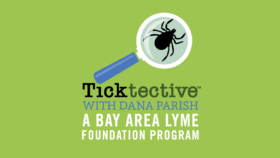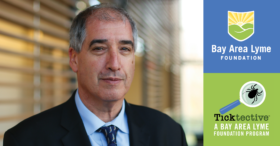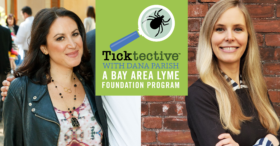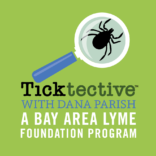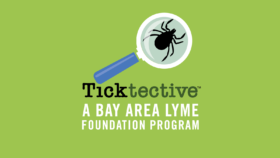By Bay Area Lyme Foundation Ticktective Podcast Transcript
Dr. Adrian Baranchuk, Professor of Medicine at Queen’s University in the Division of Cardiology in Ontario, Canada discusses his screening process for identifying Lyme infections in the heart and how to treat these patients without unnecessary pacemakers. He has published research and spoken on the topic of Lyme carditis at numerous conferences. He is passionate in his efforts to educate doctors on diagnosing Lyme-related AV heart block. Dr. Baranchuk joined Bay Area Lyme Advisor Lia Gaertner to discuss the cardiological manifestations of Lyme disease, Lyme Carditis and specific cases that illustrate his approach.
Lia Gaertner: Welcome to the Ticktective podcast and video series, a program of the Bay Area Lyme Foundation, where our mission is to make Lyme disease easy to diagnose and simple to cure. I’m your host, Lia Gaertner. Lyme disease is the most common vector-borne disease in the USA and is a global issue. This podcast includes interviews with the researchers we fund, as well as other interesting people in the Lyme scientific community. We are a nonprofit foundation based in Silicon Valley. Thanks to a generous grant that covers all of our overhead, 100% of all donations go directly to support research and prevention programs. You can find out more or donate@bayarealyme.org. Thank you for joining the Ticktective video and podcast series, Dr. Baranchuk
Adrian Baranchuk: Thank you very much for having me.
Lia Gaertner: Dr. Baranchuk, a native of Buenos Aires, Argentina, completed his training in internal medicine in cardiology, along with clinical fellowship in cardiac electrophysiology. Dr. Baranchuk is a tenured professor of medicine at Queen’s University in the division of cardiology in Ontario, Canada. He is the editor-in-chief of the Journal of Electrocardiology, as well as a member of numerous editorial boards and a reviewer for several medical journals. Dr. Baranchuk has authored eight books and published more than 700 articles in prestigious international journals, as well as 54 book chapters, and he’s presented more than 270 abstracts around the world. He is the vice president of the International Society of Halter and Non-Invasive Electrocardiology, and the Secretary of the Inter-American Society of Cardiology. He’s also the past president of the International Society of Electrocardiology. He’s been elected as a member of the Electrophysiology Leadership section of the American College of Cardiology, and is the recipient of several teaching awards as well as being voted one of the 10 most influential Hispanics in Canada.
Adrian Baranchuk: Thank you very much for the invitation. I am so pleased to be here with you today.
Lia Gaertner: I’d like to start with a case study published in the Canadian Medical Association Journal (CMAJ). It reads:
“A fatal case of Lyme disease in a previously healthy 37-year-old man illustrates the challenges of diagnosing Lyme disease in the absence of classic symptoms. The patient originally presented to his family doctor with flu-like symptoms, including fever, sore throat, nasal congestion, and migratory joint pain. Several weeks earlier, he had been in contact with ticks but didn’t recall removing one. His physician suspected a viral infection and the patient’s symptoms resolved. However, weeks later, he developed heart palpitations, shortness of breath, and chest discomfort for which he was sent to the emergency department. Lyme disease was suspected as the ECG showed complete heart block. He was admitted to the hospital and started treatment for Lyme carditis. But his condition unfortunately worsened quickly. Clinicians were unable to reverse the course of his illness, and he died. Serology results confirmed Lyme disease and an autopsy showed Lyme carditis.”
